 A Taoist story tells of an old man who accidentally fell into the river rapids leading to a high and dangerous waterfall. Onlookers feared for his life. Miraculously, he came out alive and unharmed downstream at the bottom of the falls. People asked him how he managed to survive. “I accommodated myself to the water, not the water to me. Without thinking, I allowed myself to be shaped by it. Plunging into the swirl, I came out with the swirl. This is how I survived.”
A Taoist story tells of an old man who accidentally fell into the river rapids leading to a high and dangerous waterfall. Onlookers feared for his life. Miraculously, he came out alive and unharmed downstream at the bottom of the falls. People asked him how he managed to survive. “I accommodated myself to the water, not the water to me. Without thinking, I allowed myself to be shaped by it. Plunging into the swirl, I came out with the swirl. This is how I survived.”
Posted in Liquid Zen | Tagged kayak, whitewater, zagarino, zen | Leave a Comment »
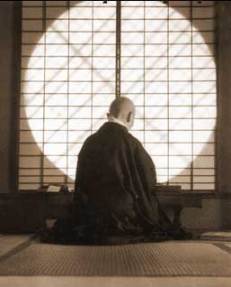 The four most dangerous words in the English language? “I have an idea.”
The four most dangerous words in the English language? “I have an idea.”
I spent seven years training as a zen buddhist monk and from the moment I first put a paddle blade into a river three years ago at the ripe young age of 48, I felt the concept of zen shift to an actualization of zen. I was struck by the value the lessons of 2500 years of zen practice take on in the rivers, and I started thinking about writing something about that.
At first I sat down to write a blog about zen training and paddling. Then I showed the first page to my friend Andy Round and he was inspired to write down his thoughts on zen and paddling. The original idea and my attachment to it fell away as soon as I realized that I have a very a limited authority to write about zen training and even less about paddling, so I’ve invited some of my friends (who can write about paddling with great authority) to contribute using traditional zen stories as a starting point for their thoughts on the confluence between zen and whitewater paddling. Along the way I’ll throw in bits and pieces, but by and large this is a communal blog. Please feel free to comment or contribute to this small community.
In gassho,
Scott
Posted in Liquid Zen | Tagged kayak, whitewater, zagarino, zen | 1 Comment »
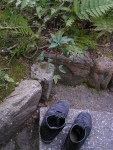 After ten years of study, Zenno believed that he was ready to be made a Zen master. One rainy day, he went to visit the famous teacher Nan-in. When Zenno went into the house, Nan-in asked: “Did you leave your umbrella and your shoes outside?” “Of course, I did,” replied Zenno. “It’s only polite. I would do the same thing anywhere.” “Then tell me this: did you place your umbrella to the right or to the left of your shoes?” “I haven’t the slightest idea, master.” “Zen Buddhism is the art of being totally aware of one’s every action,” said Nan-in. “Lack of attention to apparently minor details can completely destroy a man’s life. A father hurrying out of his house must never leave a dagger within reach of his small son. A Samurai who does not polish his sword every day will find that when most he needs it, the sword has grown rusty. A young man who forgets to give flowers to his beloved will end up losing her.” And Zenno understood that, although he had a good knowledge of Zen techniques when applied to the spiritual world, he had forgotten to apply them to the world of men.
After ten years of study, Zenno believed that he was ready to be made a Zen master. One rainy day, he went to visit the famous teacher Nan-in. When Zenno went into the house, Nan-in asked: “Did you leave your umbrella and your shoes outside?” “Of course, I did,” replied Zenno. “It’s only polite. I would do the same thing anywhere.” “Then tell me this: did you place your umbrella to the right or to the left of your shoes?” “I haven’t the slightest idea, master.” “Zen Buddhism is the art of being totally aware of one’s every action,” said Nan-in. “Lack of attention to apparently minor details can completely destroy a man’s life. A father hurrying out of his house must never leave a dagger within reach of his small son. A Samurai who does not polish his sword every day will find that when most he needs it, the sword has grown rusty. A young man who forgets to give flowers to his beloved will end up losing her.” And Zenno understood that, although he had a good knowledge of Zen techniques when applied to the spiritual world, he had forgotten to apply them to the world of men.
________________________________________________________________________________
When taken in a kayaking context, is this koan about misplaced gear? Is it about not endangering those you care about? Is it about keeping equipment in good working order? Is it about breathing love into your relationship with the river to keep it alive? The nature of Zen defies description, so there would be no lesson in my telling you what this story means. I’ve yet to be confused with a Zen master, but my belief is that self-awareness beyond self-consciousness or egotism — selfless-awareness, if you will — is the path to authentic higher learning and favorable development. Ram Dass touched on this when he urged people to “be here now”. Practice this: feel connected to all things as you inhale deeply, hold for a count, then smile and know deeply that all is as it should be as you exhale evenly. This method teaches the value of being aware and having intention in even the smallest action — something you do thousands of times per day. Jim Snyder will tell you that any lack of intention on the river quickly becomes apparent. He’s right. Further, Zen on the river extends beyond the Zen paddler’s mind and into the interaction between that mind and the world. With practiced presence of mind comes a clarity and freshness of thought, a feeling of child-like wonder and freedom, and a sense of newness in those physical actions that may have become “old hat”. Reader, your exercise is to ask yourself where you’ve been putting your umbrellas, and see if you can find new joy by focusing your entire awareness on a river-related activity that has become routine and mundane with time — challenge yourself to turn it from an afterthought to a “herenowthought”.
– Willie Illingworth
Posted in Liquid Zen | Tagged kayak, paddling, Wet Planet, zagarino, zen | Leave a Comment »
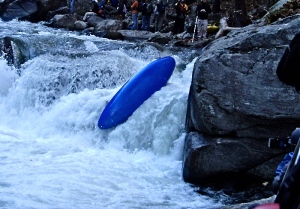 Tanzan and Ekido were once travelling together down a muddy road. A heavy rain was still falling.Coming around a bend, they met a lovely girl in a silk kimono and sash, unable to cross the intersection.
Tanzan and Ekido were once travelling together down a muddy road. A heavy rain was still falling.Coming around a bend, they met a lovely girl in a silk kimono and sash, unable to cross the intersection.
Posted in Liquid Zen | Tagged brad ludden, eric jackson, Erik Boomer, jackson kayak, kayak, paddling, whitewater, zagarino, zen | 2 Comments »
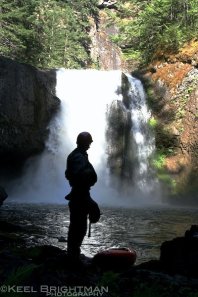 A monk set off on a long pilgrimage to find the Buddha. He devoted many years to his search until he finally reached the land where the Buddha was said to live. While crossing the river to this country, the monk looked around as the boatman rowed. He noticed something floating towards them. As it got closer, he realized that it was the corpse of a person. When it drifted so close that he could almost touch it, he suddenly recognized the dead body – it was his own! He lost all control and wailed at the sight of himself, still and lifeless, drifting along the river’s currents. That moment was the beginning of his liberation.
A monk set off on a long pilgrimage to find the Buddha. He devoted many years to his search until he finally reached the land where the Buddha was said to live. While crossing the river to this country, the monk looked around as the boatman rowed. He noticed something floating towards them. As it got closer, he realized that it was the corpse of a person. When it drifted so close that he could almost touch it, he suddenly recognized the dead body – it was his own! He lost all control and wailed at the sight of himself, still and lifeless, drifting along the river’s currents. That moment was the beginning of his liberation.
_______________________________________________________________________________
There can be no good without evil, no wrong without right. There always has to be a balance, a point at which things settle into place. You have to take the bad with the good in everything you do. Paddling is no different. I started progressing after a couple years of getting my feet wet. At the point when I became most comfortable in what I was doing mentally and physically, I reached a point of satisfaction in my personal achievements through paddling. Until one day, I became complacent, too relaxed, and took my newly found skills for granted. I had worked hard to get to where I was and I thought I was there. To my dismay, one day the river took control and stripped the confidence and power I thought to possess.
This newly humbling experience shook me to my core and mentally put me back at ground zero. A new realization set in. Concurring a river with whatever skills you think you possess is not an option! As a human you are a very fortunate individual to be lucky enough to pass through vertical walls filled with turbulent water. From then on I greatly accepted the water as my guide for the good, as well as the bad times. This experience was the catalyst for my future progression as well as applying Zen to Paddling.
– Ryan Scott
Posted in Liquid Zen | Tagged brad ludden, eric jackson, Heather Herbeck, jackson kayak, jay gifford, kayak, NW Video Scrapbook, paddling, Ryan Scott, whitewater, zagarino, zen | 1 Comment »
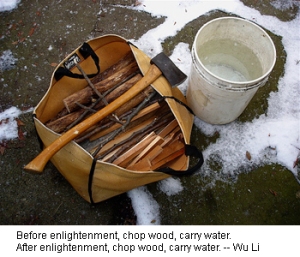 When Bankei was preaching at Ryumon temple, a Shinshu priest, who believed in salvation through repetition of the name of the Buddha of Love, was jealous of his large audience and wanted to debate with him.
When Bankei was preaching at Ryumon temple, a Shinshu priest, who believed in salvation through repetition of the name of the Buddha of Love, was jealous of his large audience and wanted to debate with him.
Bankei was in the midst of a talk when the priest appeared, but the fellow made such a disturbance that Bankei stopped his discourse and asked about the noise.
“The founder of our sect,” boasted the priest, “had such miraculous powers that he held a brush in his hand on one bank of the river, his attendant held up a paper on the other bank, and the teacher wrote the holy name of Amida through the air. Can you do such a wonderful thing?”
Bankei replied lightly: “Perhaps your fox can perform that trick, but that is not the manner of Zen. My miracle is that when I feel hungry I eat, and when I feel thirsty I drink.”
___________________________________________________
Bankei was not impressed with the Shinshu priest’s story because, to Bankei a true miracle is Zen. Bankei understands that when Zen is present one performs at their best and that is when a true miracle can happen. Kayaking teaches one this by the way we mentally approach a certain play move, rapid, or river. In Zen a kayaker can perform at his/her best by being totally focused on the task at hand. On the other hand, if one focuses on an entire rapid he/she will loose focus and perform under their natural ability. For example, Gorilla rapid on the Green River was one of the first true class five rapids I ran. When I first starting running it I was extremely intimidated because all I could see was one huge, scary rapid with lots of potential for carnage. With more kayaking experience I realized that Gorilla was like three, “smaller” rapids instead of one huge rapid. Further down the line I started focusing on particular moves within these three smaller rapids. Next, I learned to focus on each individual move within the rapid. Once, I learned to be in the moment and focus on the present task at hand I started having more success in paddling Gorilla. Not to say that it doesn’t still make me nervous but it is more manageable when taking a Zen approach.
What is Zen? To me, Zen is a state of mind where the mind is relaxed yet focused. Zen is living in the moment thinking about neither the past nor the future. Because the mind is focused entirely on the present this allows one to perform above their natural ability. Eastern culture calls this Zen as where western culture would say being in the Zone.
Anyone can find themselves in a Zen state or the Zone. It could be a musician playing a hard piece of music, a machinist shaving off the last 1/1000 piece of metal off a part, a teacher giving a lecture, a Buddhist Monk meditating, or a kayaker paddling a rapid that is challenging his/her ability. In speaking of kayaking, or other extreme sports there are three things that must be present to enter Zen or the Zone; a commitment, confidence, and control.
If you kayak long enough you will find yourself in company with someone who is like the Shinshu priest. This person will be telling you of some miraculous trick they know of and will challenge you to do the same. It may be paddling a certain river, a particular rapid, etc. I have found that just because a certain someone can paddle a clean line through a rapid, it doesn’t always mean that I can. Why is this important? In kayaking and life it is important to be honest with yourself about your skills and what consequences you are comfortable with. When you can honestly judge your own skill level you will find yourself with more control that leads to more confidence and this allows total commitment. When you have control, confidence and commitment you will find Zen more often.
One can find Zen in anything they do. For me kayaking has been a terrific gateway because kayaking is where I spend the majority of my time. The Zen I find in kayaking has allowed me to find it more often in other aspects of life. If you are interested in learning more about Zen I recommend three books. The first one is, “The C Zone Peak Performance Under Pressure.” The second is, “The Art and Zen of Motorcycle Maintenance.” The third book is, “Chop Wood Carry Water.”
– Jason Aytes
Posted in Liquid Zen | Tagged brad ludden, eric jackson, Erik Boomer, Gorilla Rapid, Heather Herbeck, jackson kayak, jay gifford, jesse becker, kayak, keel brightman, paddling, Wet Planet, whitewater, zagarino, zen | Leave a Comment »
 The son of a master thief asked his father to teach him the secrets of the trade. The old thief agreed and that night took his son to burglarize a large house. While the family was asleep, he silently led his young apprentice into a room that contained a clothes closet. The father told his son to go into the closet to pick out some clothes. When he did, his father quickly shut the door and locked him in. Then he went back outside, knocked loudly on the front door, thereby waking the family, and quickly slipped away before anyone saw him. Hours later, his son returned home, bedraggled and exhausted. “Father,” he cried angrily, “Why did you lock me in that closet? If I hadn’t been made desperate by my fear of getting caught, I never would have escaped. It took all my ingenuity to get out!” The old thief smiled. “Son, you have had your first lesson in the art of burglary.”
The son of a master thief asked his father to teach him the secrets of the trade. The old thief agreed and that night took his son to burglarize a large house. While the family was asleep, he silently led his young apprentice into a room that contained a clothes closet. The father told his son to go into the closet to pick out some clothes. When he did, his father quickly shut the door and locked him in. Then he went back outside, knocked loudly on the front door, thereby waking the family, and quickly slipped away before anyone saw him. Hours later, his son returned home, bedraggled and exhausted. “Father,” he cried angrily, “Why did you lock me in that closet? If I hadn’t been made desperate by my fear of getting caught, I never would have escaped. It took all my ingenuity to get out!” The old thief smiled. “Son, you have had your first lesson in the art of burglary.”
___________________________________________________________________________________
My Son, Dane, 14 years old, has been begging me to take him to on an expedition, with big waterfalls, so he, too, could become an expedition boater, and run the knarr. I finally accepted the 4’9” 80 pounders request and he accompanied our team to Newfoundland. His excitement never seemed to be balanced by any concern over the “what ifs” of any unknown adventure and he needed to choose wisely.
When we spotted a monstrous cascading creek coming off the side of a mountain bluff about two miles away we began our trek through the wild landscape with our kayaks on our backs forging our own trail. The first 50 footer landed on rocks, but a few large cascades below were runnable. Dane was eager to go first on each, but I made him wait for safety at the bottom; namely me. Finally, on the third and most difficult one, one that others walked around, Dane crashed into the rocks at the bottom and was ejected from his kayak instantly, being forced to the bottom by the water and not surfacing for 45 seconds of violent pummeling.
His Dad pulled him to shore, as he was gasping for breath and crying from the magnitude of the experience and the fear it instilled. Alive and unhurt. “Now”, I told him, “you are becoming an expedition boater.” “Now you will look at each challenge with more care.” No more than two minutes later, Nick ran the same drop, but pitched over upside down in mid air and nailed his head as his stern landed in 10” of water from 30’ up. He knocked himself out and was dazed for hours afterwards as we nursed him back to the truck. Dane stopped crying and helped Nick get his helmet off. Dane had learned his second lesson; he is part of a team and any weakness on his part, is dangerous to the team.
– Eric Jackson
Posted in Liquid Zen | Tagged brad ludden, eric jackson, jackson kayak, kayak, keel brightman, paddling, whitewater, zagarino, zen | 1 Comment »
 “A martial arts student approached his teacher with a question. “I’d like to improve my knowledge of the martial arts. In addition to learning from you, I’d like to study with another teacher in order to learn another style. What do you think of this idea?”
“A martial arts student approached his teacher with a question. “I’d like to improve my knowledge of the martial arts. In addition to learning from you, I’d like to study with another teacher in order to learn another style. What do you think of this idea?”
“The hunter who chases two rabbits,” answered the master, “catches neither one.”
_____________________________________________________________________________________
There are a lot of variables that come into play when learning how to kayak. People outside of our world will look at our sport and immediately translate this activity into merely a physical task, one of stamina and physical endurance. While it’s very much that, it’s almost more a mental test of one’s true strength. It takes much more energy to mentally withstand a taxing situation and to overcome fears (which are a product of our own minds) than it does physical strength, or even skill alone. While teaching yourself how to conserve the energy that you’ll need for the physical demands on the river, you first need to learn to conserve strength for mental awareness. The more you develop your technique, the less physical energy you’ll need to exert.
By combining the two, you’ll develop a style of your own, one rabbit at a time. That, and realizing that, is just one of the many ways the river rewards us.
– Jesse Becker
Posted in Liquid Zen | Tagged jesse becker, kayak, paddling, whitewater, zagarino, zen | Leave a Comment »
 A master of the tea ceremony in old Japan once accidentally slighted a soldier. He quickly apologized, but the rather impetuous soldier demanded that the matter be settled in a sword duel. The tea master, who had no experience with swords, asked the advice of a fellow Zen master who did possess such skill. As he was served by his friend, the Zen swordsman could not help but notice how the tea master performed his art with perfect concentration and tranquility. “Tomorrow,” the Zen swordsman said, “when you duel the soldier, hold your weapon above your head, as if ready to strike, and face him with the same concentration and tranquility with which you perform the tea ceremony.” The next day, at the appointed time and place for the duel, the tea master followed this advice. The soldier, readying himself to strike, stared for a long time into the fully attentive but calm face of the tea master. Finally, the soldier lowered his sword, apologized for his arrogance, and left without a blow being struck.
A master of the tea ceremony in old Japan once accidentally slighted a soldier. He quickly apologized, but the rather impetuous soldier demanded that the matter be settled in a sword duel. The tea master, who had no experience with swords, asked the advice of a fellow Zen master who did possess such skill. As he was served by his friend, the Zen swordsman could not help but notice how the tea master performed his art with perfect concentration and tranquility. “Tomorrow,” the Zen swordsman said, “when you duel the soldier, hold your weapon above your head, as if ready to strike, and face him with the same concentration and tranquility with which you perform the tea ceremony.” The next day, at the appointed time and place for the duel, the tea master followed this advice. The soldier, readying himself to strike, stared for a long time into the fully attentive but calm face of the tea master. Finally, the soldier lowered his sword, apologized for his arrogance, and left without a blow being struck.
_____________________________________________________________________________________
Eyes wide open, focused breathing, and a general calm, time seems to fade away to clearity, reactions happen in slow motion, almost like a dream. It’s that moment of calm, that the soldier saw in the tea master. It transends all activities, a face of concentration and tranquility. It’s a state of mind. The tea master did not possess the same skills as the soldier, however, his clear understanding of himself calmed even the most volatile anger.
– Keel Brightman
Posted in Liquid Zen | Tagged kayak, keel brightman, paddling, whitewater, zagarino, zen | Leave a Comment »
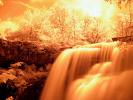 The old monk sat by the side of the road. With his eyes closed, his legs crossed and his hands folded in his lap, he sat. In deep meditation, he sat. Suddenly his zazen was interrupted by the harsh and demanding voice of a samurai warrior. “Old man! Teach me about heaven and hell!”
The old monk sat by the side of the road. With his eyes closed, his legs crossed and his hands folded in his lap, he sat. In deep meditation, he sat. Suddenly his zazen was interrupted by the harsh and demanding voice of a samurai warrior. “Old man! Teach me about heaven and hell!”Posted in Liquid Zen | Tagged Erik Boomer, kayak, whitewater, zagarino, zen | Leave a Comment »
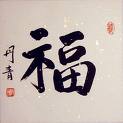 There is a Taoist story of an old farmer who had worked his crops for many years. One day his horse ran away. Upon hearing the news, his neighbors came to visit. “Such bad luck,” they said sympathetically. “May be,” the farmer replied. The next morning the horse returned, bringing with it three other wild horses. “How wonderful,” the neighbors exclaimed. “May be,” replied the old man. The following day, his son tried to ride one of the untamed horses, was thrown, and broke his leg. The neighbors again came to offer their sympathy on his misfortune. “May be,” answered the farmer. The day after, military officials came to the village to draft young men into the army. Seeing that the son’s leg was broken, they passed him by. The neighbors congratulated the farmer on how well things had turned out. “May be,” said the farmer.
There is a Taoist story of an old farmer who had worked his crops for many years. One day his horse ran away. Upon hearing the news, his neighbors came to visit. “Such bad luck,” they said sympathetically. “May be,” the farmer replied. The next morning the horse returned, bringing with it three other wild horses. “How wonderful,” the neighbors exclaimed. “May be,” replied the old man. The following day, his son tried to ride one of the untamed horses, was thrown, and broke his leg. The neighbors again came to offer their sympathy on his misfortune. “May be,” answered the farmer. The day after, military officials came to the village to draft young men into the army. Seeing that the son’s leg was broken, they passed him by. The neighbors congratulated the farmer on how well things had turned out. “May be,” said the farmer.
___________________________________________________________
Like a river, life has a predetermined path. Sometimes, the twists, turns and rapids don’t always seem to make sense, but patience, trust and time will explain each event and show it as part of the bigger picture. Ultimately, the river will end in the ocean.
This is a lesson that was illustrated more clearly than ever when I recently spent two weeks kayaking Madagascar’s largest river, the Betsiboka. Many single events on the Betsiboka didn’t make sense at the time but when we reached the take out we realized that some of the things we saw as bad luck saved the expedition and some of the things we saw as good luck nearly ended it.
We started the river and the there didn’t seem to be enough water to get down it. We saw this as bad luck. After our first 2 days we also didn’t think there would be enough gradient to produce class 5 whitewater. After 5 days, we found our first rapid. Our fears of not finding class 5 were gone instantly and we were all thankful that we didn’t have any more water as it would have been unmanageable. The rains came hard the next day and we saw the powerful storm as bad luck. We reached the next set of rapids and had just enough water to open up runnable lines. This was good luck. Such was the theme of our trip.
– Brad Ludden
Posted in Liquid Zen | Tagged brad ludden, kayak, paddling, whitewater, zagarino, zen | Leave a Comment »
 A university professor went to visit a famous Zen master. While the master quietly served tea, the professor talked about Zen. The master poured the visitor’s cup to the brim, and then kept pouring. The professor watched the overflowing cup until he could no longer restrain himself. “It’s overfull! No more will go in!” the professor blurted. “You are like this cup,” the master replied, “How can I show you Zen unless you first empty your cup.”
A university professor went to visit a famous Zen master. While the master quietly served tea, the professor talked about Zen. The master poured the visitor’s cup to the brim, and then kept pouring. The professor watched the overflowing cup until he could no longer restrain himself. “It’s overfull! No more will go in!” the professor blurted. “You are like this cup,” the master replied, “How can I show you Zen unless you first empty your cup.”
_________________________________________________________________________________________
Although it would be fair for anyone to say that I no nothing of Zen buddhism, I feel I do know something of it and I know what I know through kayaking. After years of kayaking white water I have had moments of clarity, pure focus and joy all coming to me without the feeling of really trying to reach that point, it just happens and often when I least expect it.
So many kayakers seem to kayak to boost their own sense of self, to prove themselves, either to themselves or to other kayakers, or to have that spectacular photo on the wall at home. Many only paddle class 4 and 5 considering less difficult water no fun and/or no challenge or perhaps no way to feed there own ego, so many appear to me to be somewhat disconnected to what they are actually doing.
Its not about what you have run but about how well you have run it, not because running something well looked cool to your friends, but because running something well is a better connection to what you are doing. How many can truly use the forces available to them with out effort, without losing focus?
By Andy Round
Posted in Liquid Zen | Tagged Add new tag, kayak, paddling, whitewater, zagarino, zen | Leave a Comment »
